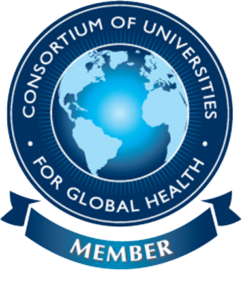Admissions
- See the Admission Requirements and Application Instructions for All MPH and MS Applicants.
- See Tips for Your Application, MPH – Health Promotion & Behavioral Science (pdf)
Overview
The Division of Health Promotion and Behavioral Science is one of the graduate divisions within the SDSU School of Public Health. It offers a Master of Public Health (MPH) degree with a concentration in Health Promotion and Behavioral Science.
The MPH program in Health Promotion and Behavioral Science provides pre- and post-doctoral instruction in behavioral and social sciences. The curriculum examines socio-ecological factors responsible for health-related behaviors that lead to morbidity, premature mortality and health disparities. Research and evaluation techniques appropriate for health behavior and community health research are taught. Graduates will be able to design, manage, and evaluate health promotion programs in a variety of settings, including schools, work sites, health care facilities, and community organizations. Emphasis is placed on the study of disease prevention and health promotion in both large populations and small groups. Extensive faculty/student collaboration is employed so that students can apply health behavior change principles in research and practice.
Curriculum
See also…
- Course Roadmap – MPH in Health Promotion and Behavioral Science (pdf, updated August 2023 for students who entered the program in 2023)
- Course Roadmap – MPH in Health Promotion and Behavioral Science (google doc, updated 2021 for students who entered the program prior to 2023)
- Educational Objectives – MPH in Health Promotion and Behavioral Science
Required Courses
The 51 unit program is listed below and is typically completed in two years by full-time students:
- Public Health Core Classes (18 units)
- PH 601 Epidemiology (3)
- PH 602 Biostatistics (3)
- PH 603 Social and Behavioral Sciences (3)
- PH 604 Environmental determinants of Human Health (3)
- PH 605 Health Services Administration (3)
- PH 606 Applied Research Methods (3)
- Health Promotion Concentration Courses (15 units)
- PH 607 Research Methods (3)
- PH 661 Theoretical Foundations of Health Promotion (3)
- PH 662 Motivating Health Behavior (3)
- PH 663 Health Communication (3)
- PH 672 Public Health Program Evaluation (3)
- Supervised Field Placement (6 units)
- PH 650R Required Community Field Practice (130 hours; 3units) Cr/NC
- PH 750F Required Community Field Practice (160 hours; 3 units) Cr/NC
- Students may take additional units of PH750 for elective credit, if approved by advisor
- Integrated Learning Experience (6 units)
- PH797 Integrated Learning Experience Supervision
- PH 799A Thesis or Project (3) Cr/NC ORPH 798 Special Study (3) Cr/NC
- Prescribed Electives (6 units) – A minimum of six additional units selected with the approval of advisor; elective offerings change each year and may include:
- PH 664 Health, Society, and Human Behavior (3)
- PH 667 Prevention and Control of Chronic Illness (3)
- PH 700F Seminar in Public Health: Qualitative Methods (3)
- PH 700F Seminar in Public Health: Quantitative Methods (3)
- PH 700G Seminar in Public Health: Health Promotion (3)
See the SDSU Graduate Bulletin for descriptions and prerequisites for these courses.
Integrated Learning Experience
Students can complete their MPH degree in the Division of Health Promotion and Behavioral Science by choosing either Plan A (Thesis-traditional or manuscript format) or Plan B (Manuscript, Systematic Review, or Capstone Project). If students select Plan A, PH 799A is required for completion of their degree. If students select Plan B, PH 798 (Special Study) is required for completion of their degree.
Time Limitation
The school expects a student to complete the degree within seven years. Failure to complete the degree requirements within seven years will result in dismissal from the program.
Questions?
Emily A. Schmied, MPH, PhD
Associate Professor & Division Head
Email: eschmied@sdsu.edu





